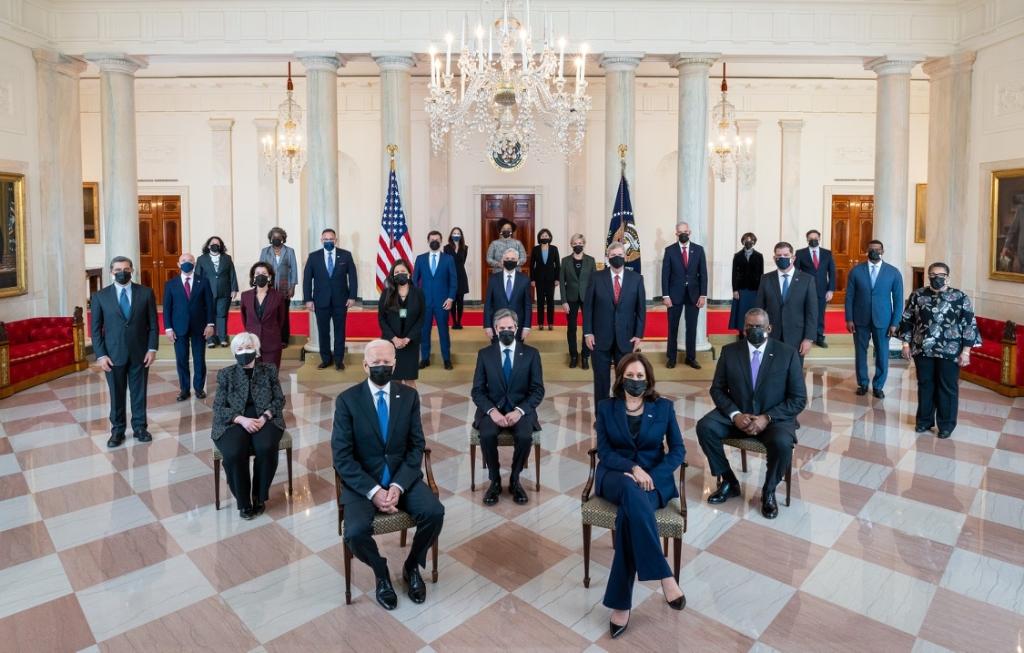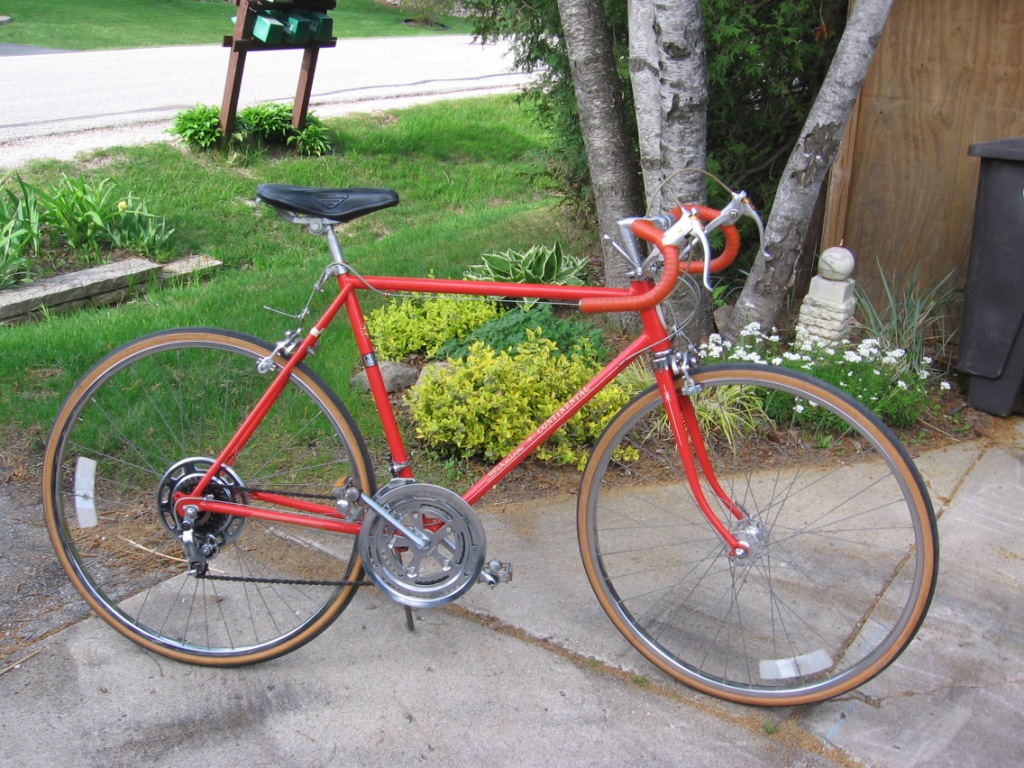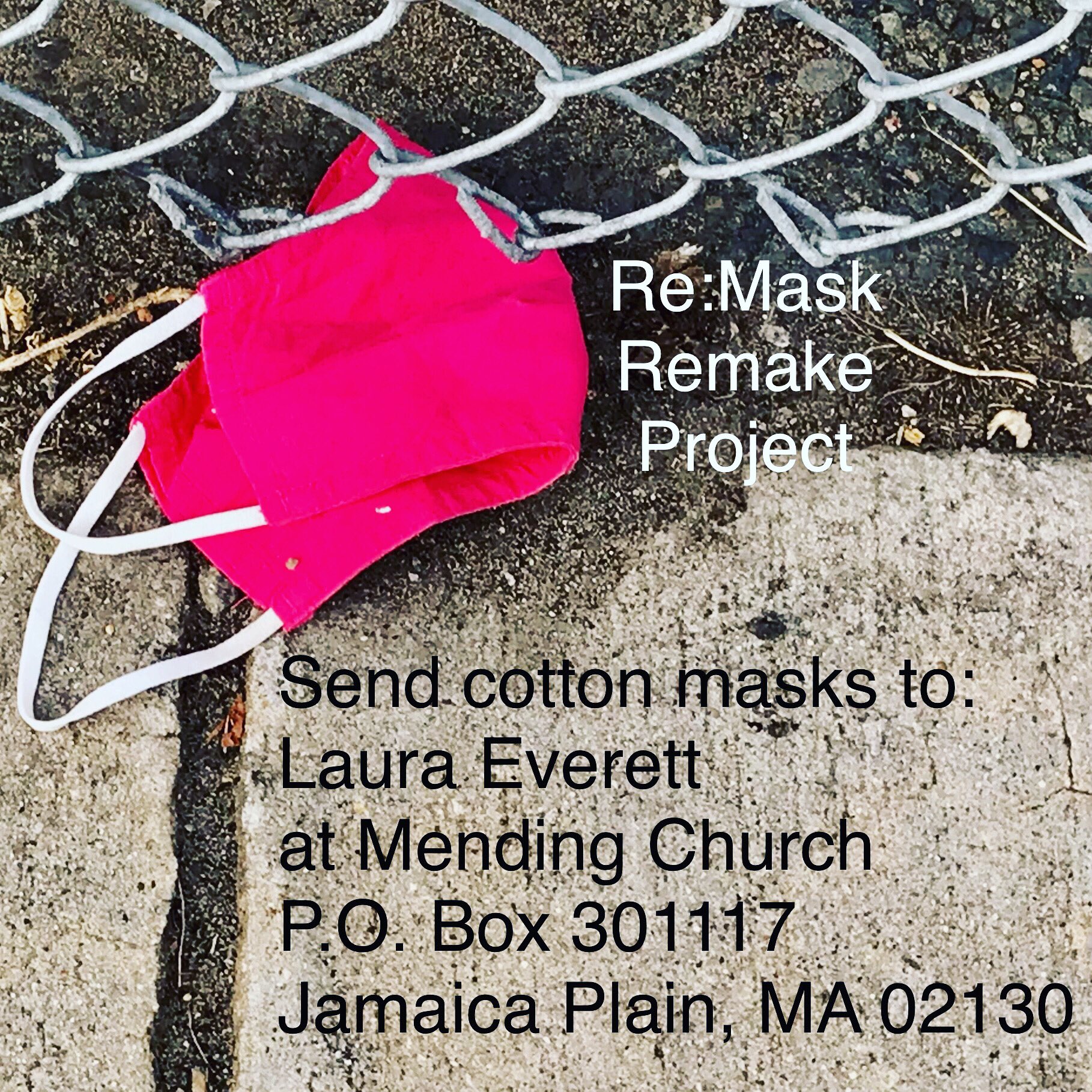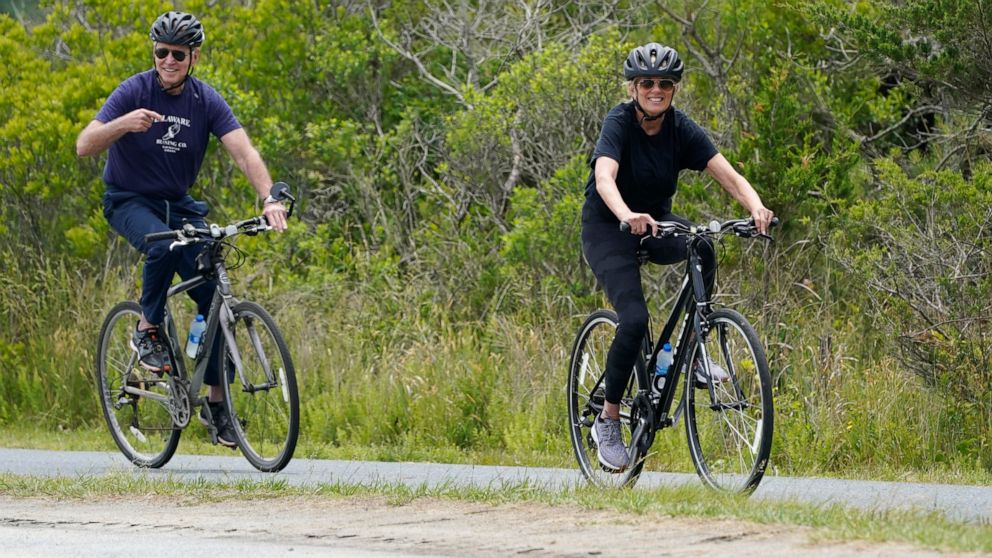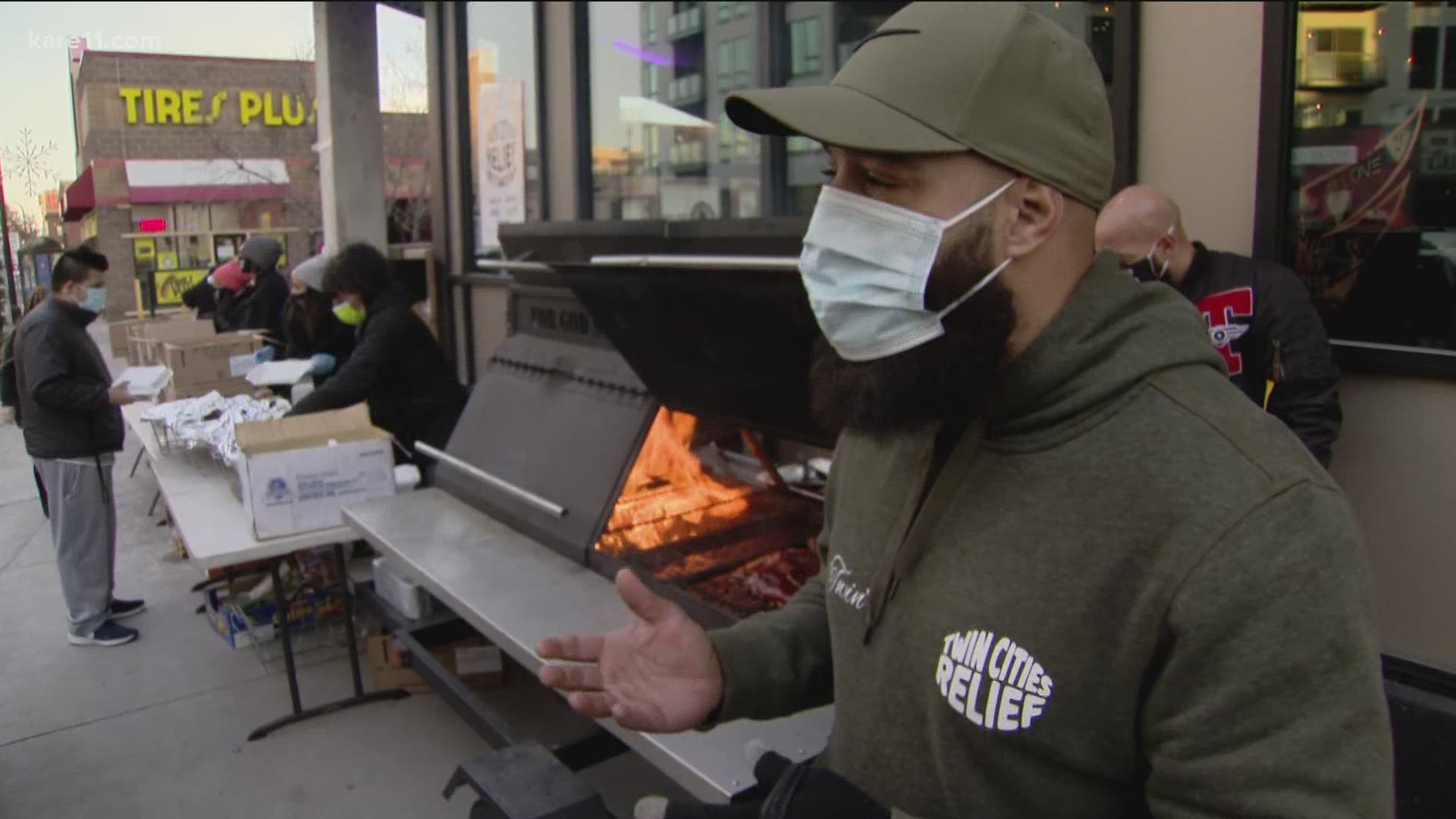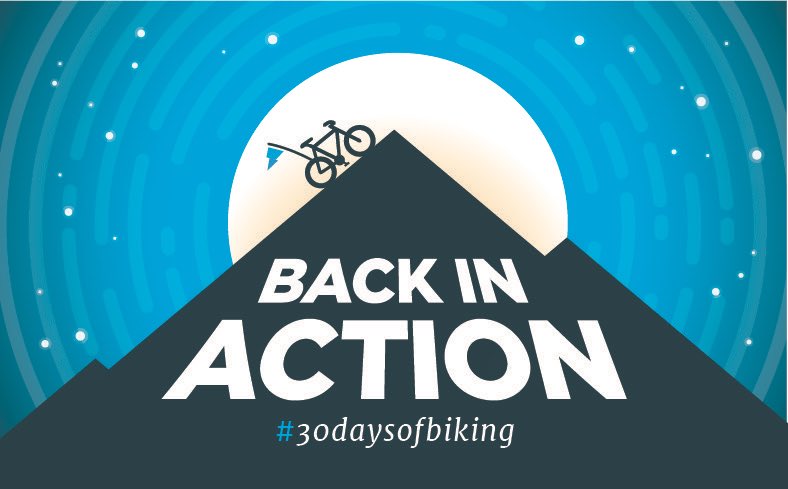Monday, December 20, 2021
Christmas Tales 2021: Rupert the Gnome Searches for a Home (for this poem Gnome and home rhyme)
Sunday, December 12, 2021
Anne Rice & Bible Study & My Walter Brueggemann prank/joke
She explained how she had done all of this research on Jesus and the Gospels and early Christianity and wanted to have a discussion with a small church about it.
Monday, December 6, 2021
Two Minute Sermon on Two Wheels: Frosty Edition (Advent 2)
Two minute sermon on two wheels: Advent 2 (Frosty Edition)
Wednesday, December 1, 2021
Giving Tuesday (on Wednesday) and Bicycling
Monday, November 22, 2021
Monday, November 8, 2021
Monday, November 1, 2021
Wednesday, October 6, 2021
Pay Your Kids Not to Drive: National Walk/Bike to School Day
In 1988 License to Drive appeared on the big screens; I was 14 at the time, I thought, like most teenagers, the greatest way toward freedom was a drivers license.
Just like Corey Feldman I ditched my bike (a sunset orange 78lbs Schwinn Continental with front headlight, white plastic bike pump, under the seat basket, and clown honking horn) and started driving my father's truck (a 1983 Chevy Silverado) as soon as I could, with delight.Foolishly, I thought I could go anywhere anytime I wanted: Myrtle Beach for the weekend (in WV this was where you vacationed), up to Williams River to trout fish, to the movies, to hang out with friends, & etc... But there were lots of holes in my theory, primarily scarcity.
In my family we only had two working vehicles, the two my parents used for work. I could only use one of the vehicles, at most, when my parents were not working during the evenings and on the weekends. Then there was that other aspect of scarcity: money. Driving cost money: insurance, gas, maintenance, wear and tear; and money I did not have. Then there was that other aspect of scarcity: interpersonal - I really wasn't all that popular, I did not date in high school, I was a burgeoning introvert.
I soon discovered that driving, rather than providing me a rush of freedom, provided me with the disappointing experience of being trapped. In just a few weeks I went from a teenager who rode his bike all over town to a licensed driver who wouldn't even think of biking, walking, or taking the bus to his destination when he did not have access to an automobile.
If I had only stayed with the bike, walked around town, and learned the bus system...
It took me twenty years to get back on a bike, but not the Continental (years ago I heard it was being used as an anchor for an ocean worthy vessel in Lake Erie).
Pause for a moment and think how difficult this is in our culture:
-Main form of identification: drivers license.
-Class offered at school: drivers education.
-ratio of parking spots at schools for car vs bikes
-sports programs that do not have busing
-pop culture images of driving (when was the last time you saw a bike commercial on television? a teenager in a movie forgoing a car and biking instead? a song on the radio about biking or walking or taking the bus?)
I thought and thought about this, even prayed about it. Then the idea occurred to me: why don't my lovely bride and I just pay our progeny not to drive?
But how much?
I called up my insurance agent, did some internet explorations, computed some numbers, talked it over with my lovely bride and came up with a number: $50 a month. It was going to cost us around $50/month to add our oldest to our auto insurance (that's with multiple line, good grades, and drivers ed deductions)
Here is how it works. We pay our oldest child $50 a month not to drive a car. We also put $20 a month on a bus card and purchased a new bike for this young adult. It's a small investment to hold off the automobile/drivers license temptation during this time of peer pressure, cultural pressure, and out of control capitalist pressure. Will it last forever? Probably not, I see this young adult sometime getting a drivers license. But if we can help this person see that car ownership is not necessary for life in a city (and in college) then I think we can help this person imagine an alternative life that is healthier, cheaper, and environmentally friendlier than a car-centered one.
Did your parents ever pay you not to drive? Did you ever ask your parents to pay you rather than put your on their auto insurance? How do you keep the love of biking, walking and public transiting more than the desire for a license?
Tuesday, October 5, 2021
The Pedaling Preacher too
Just so you know, I am taking a digital preaching class (which is fantastic).
The instructor asked if I could whittle my sermon down to 2 minutes. At first it sounded too difficult, but it was actually easier than I thought and kind of fun.
But I thought of doing something a little different: preaching my two minute sermon while riding my bike.
I recorded the mini sermon while pedaling my way to Sunday worship. The interesting part was how much clearer my longer sermon (eight minutes) was because I had preached my shorter sermon first.
To be honest this first version is 3:19 because I share a little bit of a conversation I had with my wife about this idea.
Friday, August 27, 2021
Is Bicycling Slower or Faster than Driving?
Above all, trust in the slow work of God
We are quite naturally impatient in everything
to reach the end without delay
We should like to skip the intermediate stages.
We are impatient of being on the way to something
unknown, something new. And yet it is the law of all progress
that it is made by passing through
some stages of instability-
and that it may take a very long time. And so I think it is with you.
your ideas mature gradually – let them grow,
let them shape themselves, without undue haste. Don’t try to force them on, as though you could be today what time
(that is to say, grace and circumstances
acting on your own good will)
will make of you tomorrow. Only God could say what this new spirit gradually forming within you will be. Give Our Lord the benefit of believing that his hand is leading you, and accept the anxiety of feeling yourself
in suspense and incomplete.
- Pierre Teilhard de Chardin, S.J. (1881-1955)
Tuesday, August 10, 2021
In Praise of Dave Walker
If you don't know the name Dave Walker by now, you need to.
Dave is a committed cyclists, a cartooned, and an active Methodist!
I was introduced to Dave via Carlton Reid when I asked him if he knew of any clergy who were committed cyclists. He said, "I don't think Dave is a member of the clergy. But he is a cyclist and draws great church + cycling cartoons for the Church Times." I immediately found Dave on Twitter, the Church Times' web page and then began a basking in his wonderfulness.
Dave, more than anyone I know, has been able to communicate the beauty, functionality, and justice of cycling and church going more than anyone I know. Go here for a wonderful Church Times podcast (warning, the audio is a low, you'll need to turn it up), go here for a wonderful article he wrote, Off to Church on Two Wheels, for the Church Times, and go here to pre-order his book, available in the US September 7, 2021.
Saturday, August 7, 2021
Walking, Bicycling, Public Transit and Faith Communities News Roundup: August 7, 2021.
-The Christian Century published a wonderful article by Elaine Blanchard on Revolutions Bike Co-Op. What you may not know is that Revolutions Bike Co-Op is located in First Congregational church in Memphis, TN. I spoke with the pastor a few years ago and talked about their creative building use and bicycling ministry. I love this church and I love this model!
Speaking of bikes, Minneapolis Community and Technical College is now offering a Bicycle Assembly and Repair Technician! This coupled with the Minnesota State College Southeast Technical and Community College's in Red Wing campus Bicycle Design and Fabrication program I think I am now sending my CV to offer my commencement address services, pro bono.
-Author Angie Schmitt, author of Right of Way, was on WBUR's On Point program talking about pedestrian issues, road safety and general amazingness.
-Metro Transit (the Twin Cities' public transit organization) is offering $1 fares for September and October as a way to entice riders back.
Wednesday, August 4, 2021
Clergy Bike 6.0: Papa Francesco
Friday, July 30, 2021
Thursday, June 17, 2021
Amtrak Joe and Bicycle Joe?
Friday, June 4, 2021
Walking, Biking, Public Transit and Faith Communities Weekly Roundup
Friday, May 28, 2021
Walking, Biking, Public Transit and Faith Communities News Roundup - Memorial Day edition
1. Last week the New York Times ran this story on Transit Chaplains. I had no idea that Transit Chaplains were a thing. Makes sense to me because every time a bus driver finds out I'm a clergy person (clerical collars usually give it away) they tell me all kinds of stuff. Some of it is personal and heartbreaking, some of it is amazing and beautiful.
2. Minneapolis Eliminates Parking Requirements. "The ordinance also includes an increase in bicycle parking requirements and will add new travel demand management (TDM) strategy requirements to more buildings, including every residential building with 50 or more units.
TDM options serve as incentives for developers who can offer residents free or discounted transit passes, improvements to pedestrian activity or shared vehicles for tenants. Electric vehicle chargers will be required."
Does this apply to churches/faith communities? I hope so, more information forthcoming. My hope is that there will be no more of these signs in front of churches!
Thursday, May 27, 2021
The Seminary Paradox: All (or most) are near public transit, but cars still dominate clergy/congregational life
A couple weeks ago I got on my bike and pedaled over to St. Paul to visit with Rev. Dr. Molly T. Marshall, the Interim President of United Theological Seminary of the Twin Cities. I wanted to welcome her to the Twin Cities and to catch up. It was a delightful visit, and if you've ever been her presence then you know I learned many things, was gifted by her wisdom, and smiled a lot.
This was my first visit to UTS since it moved from New Brighton to St. Paul. The campus is located at an old Case Tractor Factory, it is a lovely new building and facility.
I taught one class at UTS when it was located in New Brighton, the first half of the bike commute was nice, the last half - not so much. I smiled when the former president pulled into his parking spot in a Mercedes SUV while I locked my bike up one morning (symbols matter). The bike commute to the new St. Paul campus from south Minneapolis is a lovely ride all the way.
Part of the reason for the move from New Brighton to St. Paul was accessibility and proximity to the urban core and public transit. In this picture you can see that the new seminary is located 11 minutes from a light rail station, serviced by the #67 bus line, and is on a road with a bike lane (however, according to my eyes, I could not locate any bike parking on the new campus).
I realize seminaries are in difficult times and circumstances. And I know they are only reflecting the dominance of car-culture that is represented in local congregational life. And I know most seminaries do not function with a residential model (students living in the community or on campus). And I know most students at seminaries are older, working other jobs... And on and on. But I still wonder about symbols: could seminary faculty and staff be encouraged to walk, bike, or take public transit? Could seminaries have transit kiosks located on campus with maps and schedules? Could bike share stations be on campus? Could seminaries have Earth Day(Earth Month) celebrations where the community is encouraged to walk, bike, or take public transit for classes or to their home churches?
Something to break the cycle and imagine anew church life that is not car-centric. Because if something doesn't change at the seminary or denominational or local church level this (picture below) will continue to be the result: No parking in the bike lane, unless it's on a Sunday morning while people are worshipping (for the record this church does have handicap parking, off street parking, and plenty of available on street parking).
Wednesday, May 5, 2021
The Incense of Movement
What does movement smell like? You might say it smells like a combination of sweat, body odor, pot, and whatever someone just ate before they sit next to you. Yeah, that smells about right for certain transit trips on the bus, especially if you ride a bus around 3pm and you're scrunched together with high schoolers.
But when I think about the smell of movement, I think of it more in the area of incense. I don't know what your experience of incenses are, I love the idea of incenses but I can't handle them. As soon as the priest starts whirling the thurible around my sinuses erupt in protest.
I love the idea of incense because they alert the body that worship is taking place. Incense also alert that soul of the possibility of change: God changed God's mind because of worship via incense, Genesis 8:21, The smell of the burning offering pleased God, and he said:
Never again will I punish the earth for the sinful things its people do. All of them have evil thoughts from the time they are young, but I will never destroy everything that breathes, as I did this time).
Incense also remind us of the importance of the sense of smell and the spiritual life. I think our sense of smell is one of the most underrated of the pastoral senses. Walk into a room that smells like urine (human or pet) and you know the person is having a difficult time. Enter a room with fresh coffee and you know they were expecting you. You can smell fear, you can smell joy, you can smell anxiety, you can smell sadness.
When I move about the Twin Cities on two feet, on two wheels, or on the bus (hopefully soon again) I notice the incenses all around me. Right now it is absolutely wonderful to take in the incense of blooming flora. But while moving about you also pick up on the other incenses your neighbors share with you: there is one house I pass that is frequently roasting garlic, another house is always baking bread, and another house always smells like pot. Over time, more than street signs or familiar sights it is the incense of these houses that tell me where I am in the cities.
Over the past 11months+ I have been pedaling my bike and walking to protests and vigils and gatherings for social justice in the Twin Cities. I think most of these occasions have been some of the most spiritual moments of my life. I would even go so far to say I have found the events at 38th and Chicago, after the murder of George Floyd, to be the most real "church" experiences of my life. At 38th and Chicago there has been true lamentation, real calls for justice, undoubtable expressions of solidarity, dancing, music, art and of course the aromas/the incense of food.
At almost every event the Twin Cities Relief has been present grilling food for protestors and social justice advocates. At almost every event Appetite for Change has been present handing out to go boxes of food for protesters and social justice advocates. Their offering is just like Noah's offering - pleasing and soul changing.
I wonder what church/spiritual community life would be like if faith communities and pastoral/religious leaders led with their noses? Incenses, believe it or not, can change our ministries. After all the savory sweet aroma changed God's mind!
Wednesday, April 28, 2021
Church Parking Lots and Protests
On Saturday (April 27th) my wife and I participated in a free boxes of food distribution in Brooklyn Center. We were responding to the call from Twin Cities labor groups to help pass out food at Brooklyn Center High School (I wish clergy could join labor groups as allies for affiliation, kind of like Third Order Franciscans). Since the killing of Daunte Wright many of the local food shelves and nonprofit organizations have been closed due to the nightly protests (the protests have dwindled for the moment).
This was my first visit to Brooklyn Center since the killing. I had watched the protests online (Unicorn Riot and Andrew Mercado provide live coverage on YouTube and Facebook). I could not believe the amount of tear gas and pepper spray law enforcement unleashed on the protesters. You could tell that the protests were near apartment complexes, but when I was there in person I was shocked how close they are. I couldn't believe the massive amount of force that was trampling through a residential neighborhood.
Late one night, around midnight I could tell the protesters were all retreating to one locale, the parking lot of Lutheran Church of the Master (Missouri Synod, if you are curious). For the first few nights law enforcement met the protesters on the street, in front of the police station, and "moved" them away from the station. The protesters were forced into the apartment parking lots, strip mall parking lots and into the parking lot of Lutheran Church of the Master .
Law enforcement sought to arrest everyone who was out past curfew, but there was one location they could not pursue the protesters: the parking lot of Lutheran Church of the Master . The parking lot was, literally, "sanctuary." A judge would not issue a warrant to arrest the protesters as long as they were on church property! It was like a scene from the European Middle Ages: refugees fleeing from the law, entering a cathedral and declaring "SANCTUARY!"
If you know me, you know that I am not a fan of church parking lots; especially when they are used solely as the temporary storage of cars. But I am a fan of church parking lots that are multi-use centers. But I never thought I would witness church parking lots as sanctuary zones.
Near 38th and Chicago, George Floyd Square, there are two churches: Worldwide Outreach for Christ (kitty-corner from the site of George Floyd's murder) and Calvary Lutheran Church (one block south of George Floyd Square).
Over the past 300+ days both congregations have used their parking lots in ways other than the temporary storage of vehicles. Worldwide Outreach for Christ has used their parking lot for worship services, location for public addresses or news conferences, cookouts, medical services, & etc. Calvary Lutheran Church used their parking lot for food, clothing, and voter registration drives, gathering spot for protesters and respite.Friday, April 9, 2021
Minnesota Cathedral Bike Route
A few years ago as I prepared the pilgrimage route in Scotland and England my family would walk I kept thinking how come there are no pilgrimage routes in the United States?
I have been working on an urban pilgrimage route from Cathedral of St. Paul (in St. Paul) to the Basilica of St Mary in Minneapolis. I will release this route for feedback and suggestions later this summer (once herd immunity is reached - need bathroom stops, water fill ups, lunch and beer, prayer stations/guide, & etc).
I'd also love for there to be a walking/pilgrimage trail from Minneapolis to Collegeville, MN (to St. John's Monastery). I've mapped out a biking route for this, but you can't replace the rhythm of walking. But the Brits have a great idea: a Cathedral Bike Route. All 42 of England's cathedrals in a 2,000 mile loop, but they have broken down into easy loops too.
This made me think, what about a Minnesota cathedral loop? Minnesota has plenty of cathedrals that are close to the Twin Cities (and others that are not). Here is my idea for a 2-3 day bike packing pilgrimage route.
Friday, April 2, 2021
Walking, Bicycling, Public Transit & Faith Communities News Roundup
